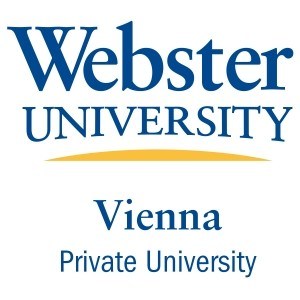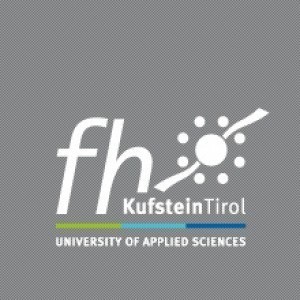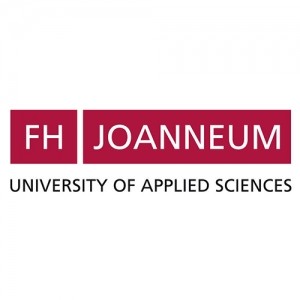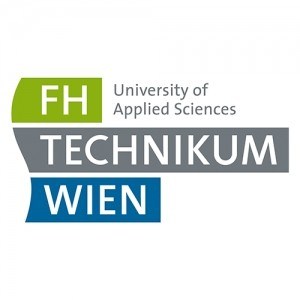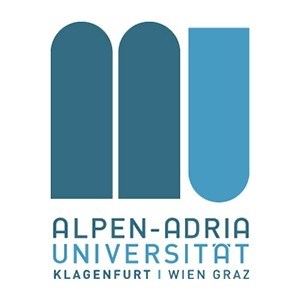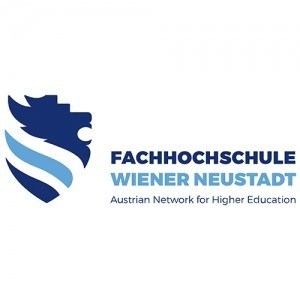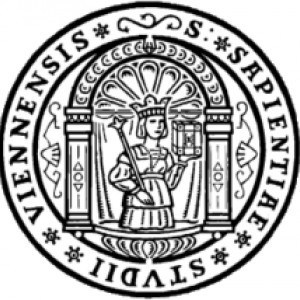Photos of university
The Bachelor of Arts in International Relations at Webster Vienna Private University offers students a comprehensive understanding of the complex and dynamic relationships that shape our world. This program is designed to equip students with the knowledge and skills necessary to analyze international political, economic, and social issues from a multidisciplinary perspective. Throughout the course of study, students will explore key topics such as global governance, diplomacy, international security, human rights, environmental sustainability, and economic development. The curriculum combines theoretical frameworks with practical applications, preparing graduates for careers in international organizations, government agencies, NGOs, journalism, and the private sector. Students will engage in critical thinking, research, and communication skills development, gaining a global outlook essential in today’s interconnected world. The program also emphasizes cultural awareness and ethical considerations, fostering a nuanced understanding of diverse perspectives and global challenges. With courses taught by experienced faculty members who are experts in their fields, students will have the opportunity to participate in internships, international exchange programs, and research projects that enhance their academic experience and professional readiness. Located in Vienna, a city renowned for its diplomatic and international institutions, the program offers unique proximity to numerous international bodies, embassies, and cultural events, enriching the learning environment. Graduates of this program will be well-prepared to pursue further studies or to enter the workforce in roles that require a sophisticated understanding of international issues and cross-cultural communication. Whether aiming for a career in diplomacy, international business, journalism, or international development, students will gain the essential skills and knowledge to make a meaningful impact in the global arena.
Degree Requirements
A minimum of 128 credit hours consisting of the following:
42 required credit hours in the Major (14 courses)
27 credits Global Citizenship Program (9 courses)
59 elective credit hours (20 courses)
Students are required to complete 42 credit hours within the department, including methods, a research requirement (fulfilled by taking the seminar, senior thesis, or a designated upper-division course), and senior overview. A minimum of 18 credit hours of international relations at Webster University is required.
Students are required to have significant international language experience. This requirement can be met by taking 12 sequential credit hours in an international language or by passing an advanced-level proficiency examination. This requirement will be waived for students whose native language is not English and who are studying in English. Their mastery of English as a second language fulfills the requirement.
Required Courses
Core Courses
- POLT 1050 Introduction to International Politics (3 credit hours)
- POLT 2600 Research Methods and Approaches in Political Science (3 credit hours)
Prerequisite: POLT 1050 or simultaneously with POLT 1050
One of the following:
- POLT 1070 Introduction to Political Theory (3 credit hours)
- INTL 2680 International Relations Theory (3 credit hours)
Prerequisite: POLT 1050
One of the following:
- POLT 1080 Introduction to Comparative Politics (3 credit hours)
- POLT 1060 Introduction to American Politics (3 credit hours)
- POLT 2250 Politics in the Industrialized World (3 credit hours)
Prerequisite: POLT 1050 and Sophomore Standing - POLT 2550 The Politics of the Developing World (3 credit hours)
Prerequisite: POLT 1050 and Sophomore Standing
The following (will be counted as general non-department elective):
- ECON 2030 Principles of Macroeconomics (3 credit hours) [mandatory]
- [ECON 2020 Principles of Microeconomics (3 credit hours) - strongly recommended, but not mandatory]
One of the following:
- INTL 3800 International Security (3 credit hours)
Prerequisite: POLT 1050, POLT 2600, ECON 2030, INTL 3100 - INTL 3500 Environmental and Energy Security (3 credit hours)
Prerequisite: POLT 1050, POLT 2600, ECON 2030, INTL 3100
One of the following:
- HIST 3100 Diplomatic History (3 credit hours)
Prerequisite: POLT 1050, POLT 2600, or 6hrs HIST - HIST 3150 International Affairs (3 credit hours)
Prerequisite: POLT 1050, POLT 2600, or 6hrs HIST - HIST 3130 History of Human Rights (3 credit hours)
Prerequisite: POLT 1050, POLT 2600, or 6hrs HIST
Each of the following:
- INTL 1500 The World Since 1500 (3 credit hours)
- INTL 2030 International Law (3 credit hours)
Prerequisite: POLT 1050 - INTL 3100 International Political Economy (3 credit hours)
Prerequisite: POLT 1050, POLT 2600, ECON 2030 - POLT 3310 Conduct of Foreign Policy (3 credit hours)
Prerequisite: POLT 1050 - INTL 3700 International Organizations (3 credit hours)
Prerequisite: POLT 1050, POLT 2600 - INTL 4600 International Relations Seminar (3 credit hours)
Prerequisite: Senior standing or Department Head permission - INTL 4620 Senior Overview (Final Semester/Term) *) (0 Credit Hours)
*) all students require a public defending of their knowledge in order to graduate
Electives
Department Electives
Any of the above or any other HIST/INTL/POLT courses, such as:
- INTL 3220 Current European and American Diplomatic Issues (3 credit hours)
Prerequisite: POLT 1050, POLT 2600 - INTL 2690 Multinational Corporations (3 credit hours)
Prerequisite: POLT 1050, POLT 2600, INTL 3100, ECON 2030
The following courses offered by other area of study may be applied as electives:
- HRTS 1100 Introduction to Human Rights (3 credit hours)
- ECON 3700 Economics of Development (3 credit hours)
Prerequisite: POLT 1050, POLT 2600, ECON 2030, INTL 3100 - ECON 4910 Comparative Economic Problems (3 credit hours)
Prerequisite: ECON 3700 - BUSN 4650 International Business (3 credit hours)
Prerequisite: INTL 2690 - MNGT 3320 Business Law: International (3 credit hours)
Prerequisite: INTL 1050, INTL 2030 - JOUR 3080 Global Journalism (3 credit hours)
At least 12 of the 36 required credits must be upper-level courses (3000 or above) with an international focus.
HIST 1800 may not be used to satisfy the 42-credit-hour requirement in international relations. Teacher certification courses (HIST 3800 and HIST 3810) may not be used to satisfy the upper-level coursework or practicum requirement. A maximum of 3 credit hours of individualized learning experiences (INDZ), practicum, or debate may be applied to total upper-level coursework. A maximum of 6 credit hours of INDZ, practicum, or debate may apply to the total 42 credit hours.
The Bachelor of Arts in International Relations at Webster Vienna Private University requires incoming students to have a completed secondary education equivalent to the Austrian Matura or equivalent qualifications from other countries. Prospective students must submit a completed application form along with official transcripts, proof of language proficiency in English, such as TOEFL or IELTS scores, and a motivation letter explaining their interest in the programme. The programme typically spans over three years, comprising a total of 180 ECTS credits, which include core courses, electives, and a capstone project. Core courses cover topics such as International Politics, Comparative Politics, International Law, Global Governance, Economics for International Relations, Human Rights, Conflict Resolution, and regional studies focusing on Europe and the Middle East. Elective courses provide students with the flexibility to specialize in areas such as International Security, Diplomatic Practice, or International Organizations. To graduate, students must successfully complete all coursework with a minimum required grade point average as specified by the university, and they are encouraged to participate in internships and exchange programs to gain practical experience. Language requirements specify proficiency in English, often demonstrated via standardized tests or prior education in English-taught courses. The programme emphasizes a multidisciplinary approach, integrating political science, law, economics, and history, and promotes critical thinking, analytical skills, and intercultural competence. Throughout the duration of their studies, students have access to faculty with diverse expertise, modern resources, and optional language courses. Students are also encouraged to participate in seminars, workshops, and conferences organized by the university or its partners. The curriculum is designed to prepare graduates for careers in international organizations, diplomacy, journalism, global businesses, or further academic research. The university offers academic advising and support services to assist students throughout their studies, ensuring they meet all academic and administrative requirements necessary for graduation.
The financing options for the International Relations undergraduate program at Webster Vienna Private University are designed to accommodate a diverse student body, providing multiple pathways to fund higher education. Students can explore various sources of financial support, including university scholarships, external grants, private loans, and payment plans. Webster Vienna Private University offers merit-based scholarships that are awarded based on academic achievement, leadership qualities, and extracurricular involvement. These scholarships can significantly reduce the financial burden for outstanding students and are renewable annually upon meeting specified criteria.
In addition to scholarships, the university encourages students to seek external funding opportunities such as government grants, private foundations, and international scholarship programs. Some students may qualify for Austria-specific grants or bursaries, which are aimed at supporting international students studying in Austria. Webster Vienna also provides information and guidance on applying for these external funding sources to help students maximize their financial aid opportunities.
For students requiring loan options, the university recommends consulting with private financial institutions that offer educational loans to international students. These loans often have favorable interest rates and flexible repayment terms. Webster Vienna Private University collaborates with a network of lenders to facilitate the loan application process, although students are responsible for obtaining and repaying any loans.
Flexible payment options are available through installment plans that allow students to pay tuition fees in monthly or semester-based installments, easing the financial burden over the course of their studies. Furthermore, the university encourages students to plan their finances carefully and provides access to financial counseling services to assist in budgeting and financial planning.
Overall, the financing of studies at Webster Vienna Private University is designed to be accessible and supportive, enabling students to focus on their academic and personal development without undue financial stress. Students are advised to contact the university’s financial aid office early in their application process to explore all available funding pathways and to ensure timely submission of scholarship and financial aid applications.
The Bachelor of Arts in International Relations at Webster Vienna Private University offers students a comprehensive and rigorous education in the field of international affairs. The program is designed to provide a solid foundation in political science, economics, history, and diplomacy, enabling graduates to understand and analyze complex global issues. The curriculum emphasizes critical thinking, intercultural communication, and practical skills necessary for careers in diplomacy, international organizations, government agencies, and the private sector. Students have the opportunity to study a variety of topics, including international security, global governance, human rights, international trade, and environmental policy. The program incorporates a blend of theoretical knowledge and practical applications through internships, case studies, and simulations, preparing students for real-world challenges. Faculty members are experienced professionals and scholars committed to delivering high-quality education and fostering an international learning environment. The program also benefits from Webster Vienna's strategic location in Austria, which provides access to European diplomatic centers and international institutions, enriching the educational experience. Graduates of this program are well-equipped to pursue advanced studies or enter the workforce with a strong understanding of international dynamics and the skills needed to succeed in a competitive global landscape. The program aims to develop globally minded individuals who are capable of making informed contributions to international policy, diplomacy, and development.
